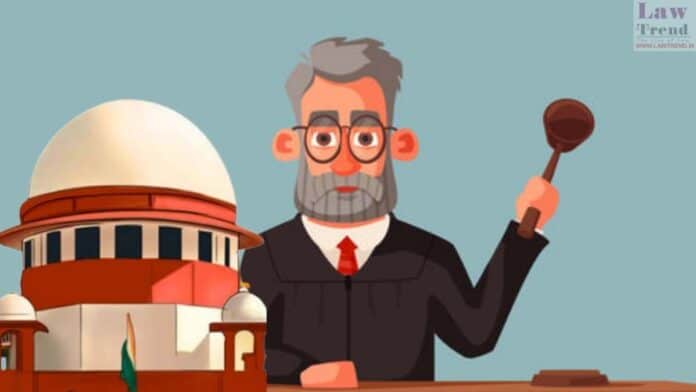A judge has to be fair and impartial but that does not mean he will simply shut his eyes and be a mute spectator acting like a robot, the Supreme Court has said while criticising the trial court and the Patna High Court which handed down death penalty to a man accused of raping and strangling to death an 11-year-old girl who had gone to watch television at his home in 2015.
Setting aside the order of death sentence, the top court remitted the case back to the high court for reconsideration of the death reference after noting serious flaws in the investigation.
The apex court was hearing an appeal filed by a man challenging the death penalty awarded to him for raping and strangling the girl.

According to the prosecution, the accused had raped and strangled the girl on June 1, 2015 when she had allegedly gone to his home in a village in Bihar’s Bhagalpur district to watch television.
The trial court in Bhagalpur had in 2017 convicted the accused of rape and murder and handed down the death penalty, holding the offence fell under the rarest of rare category.
The Patna High Court had in 2018 dismissed his appeal against conviction and confirmed the death penalty.
An apex court bench of Justices B R Gavai, J B Pardiwala and Prashant Kumar Mishra said there were very serious lapses in the entire investigation and even the Forensic Science Laboratory report was not obtained.
“The aforesaid lapse is just a tip of the iceberg. We are at pains to state that it is a very serious flaw on the part of the investigating officer and that too in such a serious matter,” the bench said.
The apex court said another serious flaw in the present case on the part of the investigating officer is the failure to subject the appellant to medical examination by a medical practitioner.
No explanation, much less any reasonable explanation, has been offered for such a serious flaw on the part of the investigating officer, it said.
The top court said it was aghast to see that the trial court and the high court proceeded on the basis that the man was guilty as he came to the house of the victim on the day of the incident and lured her to come to his house to watch TV.
However, the case of all the witnesses before the police was that it was another juvenile accused who came to the house of the victim and took her along with him.
“Neither the defence counsel nor the public prosecutor nor the presiding officer of the trial court and unfortunately even the High Court thought fit to look into the aforesaid aspect of the matter and try to reach to the truth…
“The presiding officer of the trial court also remained a mute spectator. It was the duty of the presiding officer to put relevant questions to these witnesses,” the bench said.
The top court said, the case being of rape and murder, the trial court judge ought to have acquainted himself with the important material and also with what the only important witnesses of the prosecution had said during the police investigation.
“No doubt he has to remain very vigilant, cautious, fair and impartial, and not to give even a slightest of impression that he is biased or prejudiced either due to his own personal convictions or views in favour of one or the other party.
“This, however, would not mean that the Judge will simply shut his own eyes and be a mute spectator, acting like a robot or a recording machine to just deliver what stands feeded by the parties,” the bench said.
Observing that truth is the cherished principle and the guiding star of the Indian criminal justice system, the apex court said the sole idea of criminal justice system is to see that justice is done.
Also Read
Justice will be said to be done when no innocent person is punished and the guilty person is not allowed to go scot free, it said.
“Free and fair trial is sine-qua-non of Article 21 of the Constitution of India. If the criminal trial is not free and fair, then the confidence of the public in the judicial fairness of a judge and the justice delivery system would be shaken.
“Denial to fair trial is as much injustice to the accused as to the victim and the society. No trial can be treated as a fair trial unless there is an impartial judge conducting the trial, an honest, able and fair defence counsel and equally honest, able and fair public prosecutor,” the bench said.
The top court said a fair trial necessarily includes fair and proper opportunity to the prosecutor to prove the guilt of the accused and opportunity to the accused to prove his innocence.
While remitting the case back to the high court, the top court noted that the man is in jail for the past more than nine years and asked the HC to take up the matter expeditiously.
“As the appellant convict is in jail for past more than nine years, his family might be in dire straits. He may not be in a position to engage a lawyer of his choice. Probably, he may not be in a position to even understand what is said in this judgment.
“In such circumstances, the high court may request a seasoned criminal side lawyer to appear on behalf of the appellant and assist the court,” the bench said.







